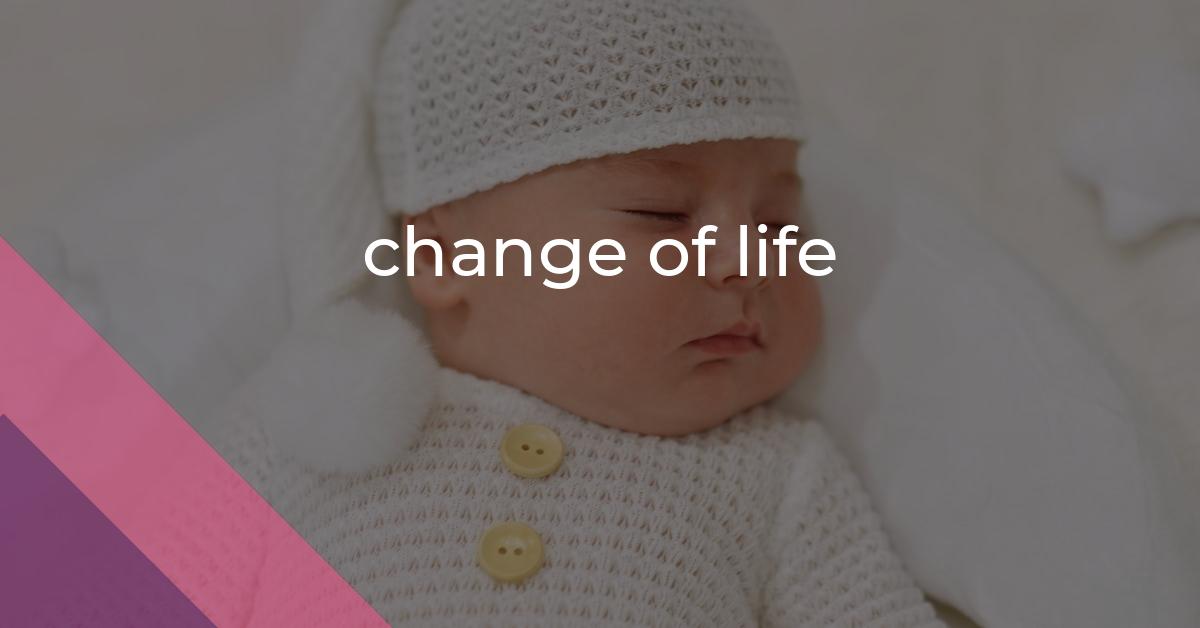change of life: Idiom Meaning and Origin
What does ‘change of life’ mean?
The idiom "change of life" refers to a significant transition or transformation that a person goes through, often associated with a major life event or milestone.

Idiom Explorer
The idiom "good life" refers to a state of living that is comfortable, enjoyable, and fulfilling. It implies a life filled with happiness, success, and contentment.
The idiom "give birth" means to have a baby or to bring a new life into the world.
The idiom "get changed" means to change one's clothes or appearance, typically in order to look more presentable or appropriate for a specific situation or event.
The idiom "get a life" means to find or develop new interests or activities in order to have a more fulfilling and meaningful existence. It is often used as a dismissive or playful remark to suggest that someone should focus on something other than what they are currently preoccupied with.
The idiom "for a change" is used to express a desire or need for something different, in order to break routine or try something new.
The idiom "die the way one lived" means that a person's death reflects their lifestyle, actions, or choices during their lifetime.
The idiom "day of days" refers to a highly significant or memorable day, often considered the most important or remarkable in a person's life or in a particular context.
The idiom "cradle-to-grave" describes something that covers a person's entire life from birth to death. It implies comprehensive care, support, or involvement throughout all stages of life.
The idiom "come to life" means to suddenly become active or animated, often referring to an inanimate object or a previously dull situation. It signifies a lively transformation or a sudden burst of energy, making something more vibrant and engaging.
The idiom "come of age" refers to the point in a person's life when they reach adulthood or become mature and responsible.
Decoding Life's Turning Point
The idiom "change of life" is known to have multiple meanings and interpretations. Here, we will explore the most widely accepted meanings and usages of this expression in the context of the United States.
One common interpretation of "change of life" is related to menopause. This is the period when a woman experiences significant physical and hormonal changes signaling the end of her reproductive years. These changes are often accompanied by symptoms such as hot flashes, mood swings, and sleep disturbances. Menopause is seen as a transitional phase, marking a changeover from a woman's fertile years to a new phase of life. It is a natural process that every woman goes through as she comes of age.
Another interpretation of "change of life" extends beyond menopause and encompasses any significant life-altering event or transition. This could be a milestone event such as getting married, having children, or starting a new career. It could also be a personal choice to make a major life change, like moving to a new city or pursuing a passion. These changes of life often come with a change of scenery and bring about new experiences and opportunities. They can be refreshing and rejuvenating, offering a chance for personal growth and development. Sometimes, people make changes for a change, just to break the routine and try something new. This can lead to a change of tack in life, a shift in direction or approach that brings about positive outcomes.
In addition to personal changes, the phrase "change of life" has also been used metaphorically to describe changes and transformations occurring on a societal or global scale. It can refer to the shifts brought about by technological advancements, economic fluctuations, political upheavals, or cultural movements. These changes of life have a profound impact on society and individuals alike, shaping the way we live, work, and interact with one another. They can reshape industries, create new opportunities, and challenge existing norms. As society continues to evolve, change of life becomes an intrinsic part of our collective journey.
It is worth noting that the idiom "change of life" is often used colloquially and figuratively, rather than in strictly literal terms. This emphasizes the impact and significance of the change being discussed, going beyond its literal interpretation. Whether we are talking about menopause or personal transformations, societal shifts or global changes, the idiom "change of life" invites us to reflect on the transformative nature of the human experience. It reminds us that change is an inevitable part of life and encourages us to embrace these changes and explore the possibilities they may bring, both individually and collectively. So, let's welcome change of life with open arms and embrace the transformations that lie ahead.
Example usage
Examples of how the idiom "change of life" can be used in a sentence:
- After going through a divorce, Mary decided to pursue a change of life by moving to a different city and starting a new career.
- My parents are planning to retire next year and are looking forward to a change of life, which includes traveling around the world.
- John's midlife crisis prompted him to make drastic changes in his life, including getting a new job and buying a sports car - a classic example of a change of life.
More "Midlife" idioms
We missed the mark - nothing found.



